Introduction: The Economic Challenge of History’s Biggest World Cup
FIFA World Cup 2026 Ticket Pricing: The 2026 FIFA World Cup is set to be an unprecedented event. For the first time, the tournament will be co-hosted by three nations—the United States, Canada, and Mexico. With 48 teams participating across 104 matches, this will be the largest sporting event in history. Excitement among global football fans is peaking as they anticipate their favorite teams competing across 16 different North American cities.
However, this massive scale comes bundled with significant economic and logistical challenges. FIFA has set an ambitious revenue target of earning $11 billion from this tournament a goal that heavily influences 2026 FIFA World Cup ticket pricing. This high financial objective clearly signals that organizers are prioritizing maximum profit. Consequently, despite the tournament’s increased size, the unusually high ticket prices and complex border-crossing regulations threaten to make this a distant dream for ordinary fans worldwide.
Core Ticket Pricing Structure and Category Analysis: Leaked Data and Market Reality
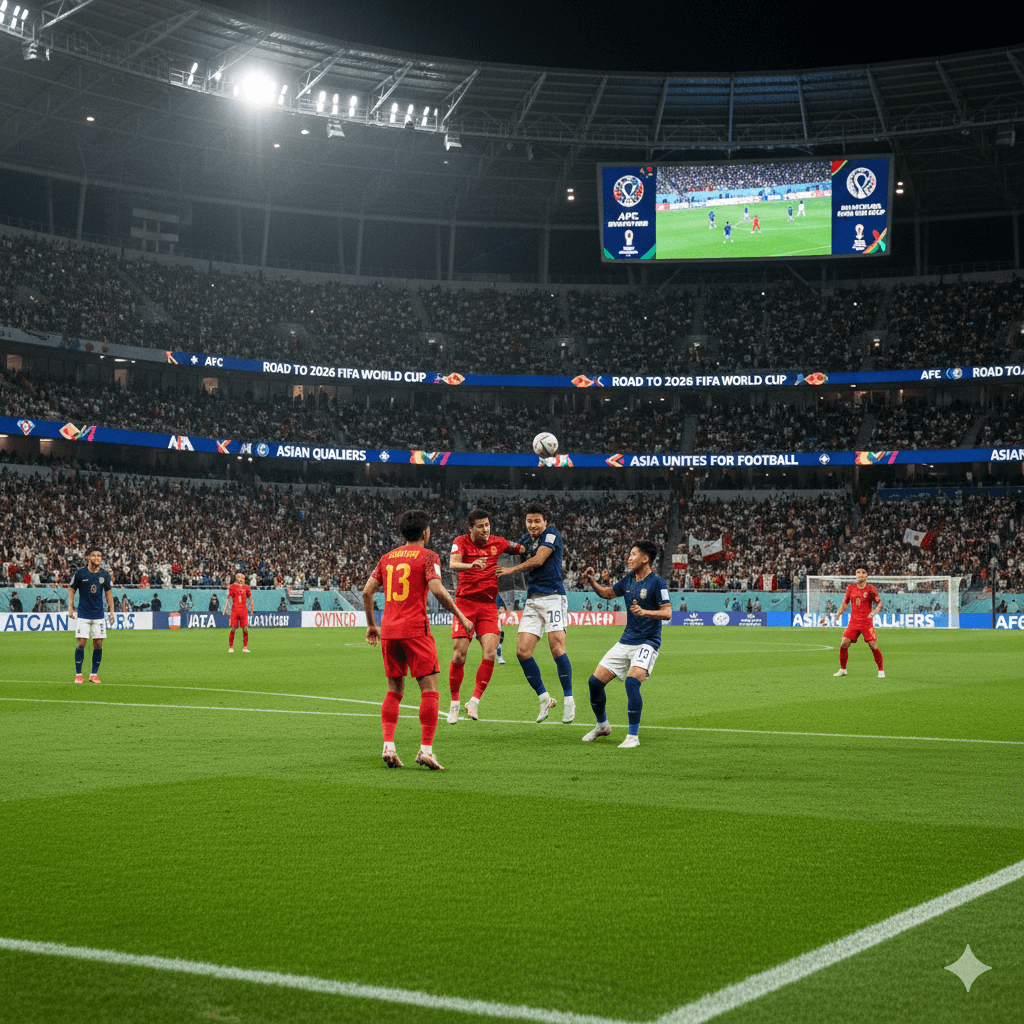
For the 2026 World Cup, FIFA has established four primary ticket categories, with prices determined by stadium location and view. Category 1 seats offer the best views (near midfield) and are the most expensive. Conversely, Category 4 tickets are the cheapest, generally located in the upper corners or behind the goal.
Category 4: The Public Relations Strategy
FIFA announced that the lowest-priced tickets for some Group Stage matches would start at $60 [2, 6]. While this appears to be an affordable entry point, it is primarily a symbolic gesture. According to leaked information from lottery winners, the supply of these $60 tickets is extremely limited and confined to specific early Group Stage matches. The main ticket inventory is concentrated in the higher-priced Categories 1, 2, and 3. This clearly indicates that the $60 entry price is a public relations strategy designed to show the tournament is accessible to all, even though the majority of seats remain out of reach for the average person.
Detailed Price Analysis by Match Phase
While Group Stage matches may start at $60 (Category 4), most seats are expected to range between $250 and $535
, representing a significant expense for international fans.
Host Nation Opening Matches: Matches featuring the host countries naturally command a premium. Tickets for Mexico’s opening match could range from $370 to $1,825. For the USA’s opener, prices start at $560 and reach up to $2,735. Category 1 tickets for Canada’s opening match might cost up to $1,745. This premium pricing ensures that host nation matches primarily target high-purchasing power local residents and affluent enthusiasts.
Knockout Stage Price Inflation: As the knockout rounds commence, Category 4 tickets virtually disappear. Prices for the Round of 32 start between $125 and $170. Category 1 tickets for the Quarter-Finals reach $426 to $966. For the Semi-Finals, Category 1 tickets will exceed $900
.
The Stunning Reality of the Final: The ticket prices for the Final, to be held at MetLife Stadium in New York/New Jersey, have attracted significant criticism. Prices for this match range from $2,030 up to $6,730. Critics have compared these prices to those of other major North American sporting events, such as the Super Bowl.
Estimated Single Match Ticket Prices for FIFA World Cup 2026 (USD)
| Match Phase | Category 1 (Premium) | Category 2 (Mid-range) | Category 3 (Lower Cost) | Category 4 (Lowest) | Source |
| Group Matches | $535 – $2,735 | $248 – $659 | $165 – $357 | $60 – $105 | |
| Round of 32 | $440 – $590 | $288 – $440 | – | $125 – $170 | |
| Quarter-Finals | $426 – $956 | $288 – $659 | – | $82 – $137 | |
| Final Match | $2,030 – $6,730 | $1,003 – $3,650 | $605 – $2,200 | $205 – $750 |
Price Comparison: The North American Premium
A comparison with past World Cups highlights the steepness of the 2026 prices. For instance, the most expensive ticket for the Qatar 2022 Final was approximately $1,606, significantly lower than the $6,730 peak in 2026. FIFA has justified these prices by aligning them with the North American market.
This situation sends a clear message: FIFA views the 2026 World Cup not as a global event, but as a major premium North American sporting spectacle. They are exploiting the high local market prices, prioritizing revenue over the financial capacity of global fans. North American fans are accustomed to and prepared to pay high prices for sporting events. By leveraging this habit, FIFA is ensuring maximum profit, potentially denying millions of passionate football fans from the Southern Hemisphere the chance to witness the games.
Official Ticket Purchase Methods and Schedule Guide: Lotteries and Strategies
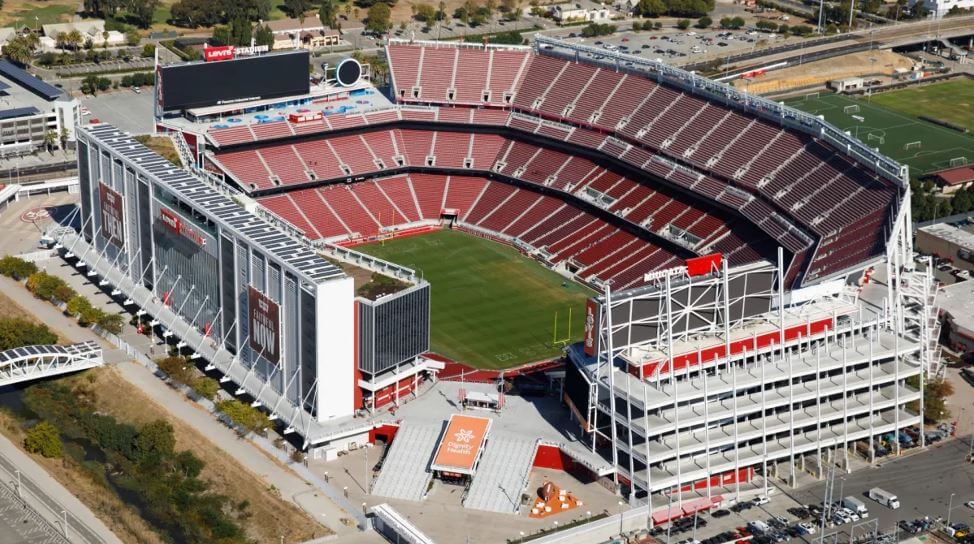
Acquiring tickets for the 2026 World Cup is a competitive and complex process, heavily reliant on lotteries and specific timelines.
FIFA ID Registration: The Start of Your Ticket Journey
The first and most crucial step in buying a ticket is registering for a FIFA ID
. Interested fans must visit FIFA.com/tickets to create this ID using their personal details. This ID is mandatory for all future ticket applications, lotteries, and communications.
Visa Presale Draw: The Controversy of Early Access
The initial ticket sales phase was the Visa Presale Draw. The application period for this lottery ran from September 10 to 19, 2025.
The main condition for participating in this phase was possessing a valid, unexpired Visa debit or credit card. As FIFA’s Official Payment Technology Partner, Visa cardholders were granted this exclusive advantage.
More than 1.5 million ticket draw requests were submitted within the first 24 hours, with over 4.5 million fans applying to participate in the lottery overall. Given this overwhelming demand, securing a chance in this first lottery was a significant step toward success. Following a randomized selection process, successful applicants began receiving email notifications no earlier than September 29, 2025. They were then able to purchase tickets during their assigned time slot starting October 1, 2025 (on a first-come, first-served basis, subject to availability)
.
The exclusive nature of the Visa Presale Draw highlights how FIFA uses its corporate sponsors to control ticket access. Those who do not use a Visa card missed the best and earliest opportunity in the lottery, a controversial move for the world’s global festival. Limiting the advantage of the first lottery phase to customers of one financial company, despite the high global demand, contradicts the spirit of a global football celebration.
FIFA World Cup 2026 Ticket Sales Schedule (Visa Presale Draw)
| Event | Timeline | Details and Importance | Source |
| FIFA ID Registration | Ongoing | Mandatory for participation in the ticket lottery. | |
| Visa Presale Draw Application Period | September 10 – 19, 2025 | First and most important sales phase; exclusive to Visa cardholders. | |
| Successful Applicant Notification Starts | No earlier than September 29, 2025 | Results will be communicated via email. | |
| Ticket Purchase Time Slots Begin | October 1, 2025 | Successful lottery winners purchase tickets on a first-come, first-served basis. |
Future Sales Phases and Demand
Beyond the Visa Presale Draw, additional sales phases are anticipated. For example, an Early Ticket Draw may begin on October 27, 2025. Fans must regularly monitor FIFA.com/tickets and be prepared for future lottery or first-come, first-served sales opportunities
.
Although global, the highest number of applications came from the host nations—the United States, Mexico, and Canada. Demand was also high from Germany, England, Brazil, Argentina, Colombia, Spain, and Italy.
The Secondary Market and FIFA’s 15% Reselling Fee
FIFA manages an official secondary market in the United States and Canada. On this platform, FIFA charges a 15% fee to both sellers and buyers. FIFA claims this is to protect fans and prevent fraud.
However, critics argue that by charging this 15% fee, FIFA is effectively profiting from high-priced reselling itself—acting similarly to a market broker. If prices on the reselling platform skyrocket, FIFA reaps a portion of that profit. This has led to instances where tickets for matches like the Final reached $38,000 on unofficial reselling sites. putting them completely out of the reach of ordinary fans.
Mexico, however, presents an exception. Pricing is regulated there, and FIFA agreed to limit resale prices to face value on an exchange platform. This regulation proves that similar fan protection measures could have been implemented in the other host countries.
Hospitality Packages: Luxury and the Corporate Market
For those who can afford tickets at the highest prices, FIFA offers a range of Hospitality Packages. These packages guarantee premium seating, high-quality food and beverages, and access to exclusive lounges. Options include MATCH Business Seat, MATCH Pavilion, and MATCH Club, alongside premium choices like the Trophy Lounge, Champions Club, and FIFA Pavilion.
These premium packages ensure revenue stability for FIFA and begin selling long before general tickets.
Package Pricing Structure
Hospitality package prices are exponentially higher than general tickets. The cheapest Group Stage hospitality packages start at approximately $1,350 per match.
‘Follow My Team’ Packages: Packages for fans who wish to see all their specific team’s group matches range between $4,995 and $7,200. However, due to high demand for certain teams, such as Colombia, these packages can cost as much as $13,500.
Ultimate Corporate Expense: Venue packages can start at $14,000. The Pitchside Lounge package for the Final match can cost up to $68,150. A six-person corporate suite will easily exceed $100,000.
This high-cost structure confirms that a significant portion of the event is not reserved for general fans, but for the affluent and corporate clientele. A core pillar of FIFA’s economic model is this premium corporate sales component. While general ticket sales are uncertain (reliant on lotteries), hospitality sales are guaranteed and carry high margins. This system reduces the overall number of available general tickets and diminishes the tournament’s accessibility. It places the commercial aspect of the game above the emotional experience of the ordinary fan.
The Global Affordability Debate: Dynamic Pricing and Lack of Inclusion
One of FIFA’s most controversial decisions regarding 2026 World Cup ticket pricing is the use of a dynamic pricing model. Under this model, ticket prices can change in real-time based on market demand. Critics have openly labeled this practice “price-gouging”. They argue that the model is not based on fandom or loyalty to the game, but solely on maximizing profit.
Politicians in New York have petitioned for price controls in protest of this surge, reflecting the frustration of fans worldwide. They argue that FIFA has effectively absorbed the role of the secondary market ticket touts.
The Dual Impact of Dynamic Pricing
While dynamic pricing can inflate the cost of high-demand matches, some analysts note that the model has an inverse effect. For relatively less-attractive matches, especially close to kickoff, ticket prices can drop significantly. For example, tickets for a Club World Cup semi-final in the past have seen price reductions of up to 95% at the last minute. Therefore, fans not specifically attached to a certain team might capitalize on finding cheaper tickets at the eleventh hour. This is a risky strategy, however, dependent on the match’s appeal, team performance, and inventory availability.
Barriers to Entry for Fans from Low-Income Countries
The high prices of the World Cup tickets exceed the purchasing power of most people globally. The cost of a knockout match ticket (ranging from hundreds to thousands of dollars) is astronomical compared to the monthly or even annual income of many citizens in developing and low-income nations. This high-cost structure effectively distances ordinary middle-class families, who are often the most passionate about football, from the stadium experience.
Changing Audience Composition and Economic Consequences
The combination of strict visa policies and high ticket prices is expected to significantly reduce the number of international fans. Economists point out that foreign tourists generate the largest positive economic impact on host countries’ economies. They spend money not only on tickets but also on extended hotel stays, local restaurants, and other businesses.
If stadiums are primarily filled by local North American audiences, the overall global economic impact will diminish. Local fans often do not have the same spending habits, limiting the total economic benefit for the host cities. Furthermore, there is a risk of reduced cultural diversity in the stadiums. The World Cup could end up resembling a corporate sports event rather than a global football festival.
Fan Budget Guide Beyond the Ticket: The True Cost
When planning for the 2026 World Cup, international fans must realize that ticket prices are just the tip of the iceberg. The additional costs of travel and accommodation across three North American countries can easily surpass the ticket price by several times.
Accommodation Costs: Unexpected Inflation
The surge in hotel prices in host cities on match days is dramatic. Research shows that accommodation costs increase drastically in many cities during matches. For example, hotel prices saw an increase of up to 544% in Houston and up to 250% in Vancouver for some match days.
This accommodation inflation ensures that fans will need a budget spanning thousands of dollars beyond the ticket price. Even if a fan successfully wins a $60 Category 4 ticket in the lottery, the combined cost of accommodation, travel, and visas will easily push the total expenditure above the $2,000-$5,000 range. This situation demonstrates that, despite the availability of ‘affordable’ tickets, the overall trip remains unfeasible for most global fans. The $60 ticket is, in essence, a false promise of affordability.
Multi-Country Travel Logistics and Budget
Traveling across three countries means crossing multiple borders, which increases complexity [25]. North America is geographically vast, and the distances between Canada, Mexico, and the United States mean that internal travel costs will be significant.
However, travel between Mexico’s host cities is comparatively inexpensive. Domestic flights between Monterrey, Mexico City, and Guadalajara typically cost under $150 and take two hours or less [26]. For those on a limited budget seeking to attend multiple matches, choosing Mexican cities could be a smart strategy.
Experts estimate that a comfortable 10-day World Cup trip (including tickets, food, and miscellaneous expenses) will require a budget of approximately $5,000 per fan [24]. Around 25% of this expense will be dedicated to international and domestic travel [24]. Fans must remember that the logistical costs of the World Cup often outweigh the ticket prices, as hotels, restaurants, and airlines levy high prices near the event date.
The Greatest Barrier: Visa and Border Complexities
Even more formidable than the high ticket prices are the strict and time-consuming visa processes in North America, particularly the United States, for international fans.
U.S. Visa Process: Long Waiting Times
Most international travelers seeking to attend World Cup matches in the United States will require a B1/B2 tourist visa. Some countries under the Visa Waiver Program may enter via ESTA. However, fans from most football-loving nations, especially in South America and Africa, must go through the standard visa application process.
Waiting times for visa interviews at U.S. embassies have dramatically increased, creating a massive logistical hurdle. For citizens of passionate football countries like Colombia, the wait time for a U.S. visa interview can be up to 18 months. This means their appointment would fall long after the World Cup ends, effectively making attendance impossible.
The application process requires fans to complete the online Form DS-160, pay the application fee, and attend an interview at the embassy. During the interview, applicants must demonstrate strong ties to their home country (such as family, employment, or property) and prove the financial capability to cover their trip expenses.
These lengthy waiting times and strict rules make attendance virtually impossible for fans from many nations. This severely undermines the global unity and inclusive ideals of football [3, 4]. Unlike single-host countries like Qatar and Russia, where a Fan ID often substituted for a visa, FIFA has failed to implement a coordinated system due to the strict border policies of the three sovereign North American states.
Canada and Mexico Entry Regulations
Since the tournament spans three countries, fans must check the entry rules for each nation. Most international travelers to Canada require a Visitor Visa or an Electronic Travel Authorization (eTA). The Canadian government advises fans to apply for their visas well in advance, as processing times vary. Mexico’s entry regulations also change based on nationality.
Fans must ensure their travel documents permit seamless travel between the three countries, which is a complex and time-consuming process. These cross-border complexities and the strict U.S. immigration policies have raised concerns among foreign fans, threatening to limit international attendance.
Essential Questions for Global Fans (SEO-Friendly FAQ)
Can I buy tickets without a FIFA ID?
No. A FIFA ID is mandatory for entering the ticket lottery or making a purchase. It is the start of your ticket journey, and FIFA uses this ID to maintain all applicant data
Is a Visa card mandatory for buying tickets?
No, any valid payment method can be used for purchasing tickets. However, the first and most important sales phase (Visa Presale Draw) was exclusive to Visa cardholders
. Future sales phases will generally be open to all.
Will Category 4 tickets be available for international fans?
Yes, Category 4 tickets will be available to international fans. However, they are very limited in number and usually sell out quickly, often only for specific Group Stage matches. Prices start at $60.
Can I sell my ticket if my team is eliminated?
Yes, if FIFA operates an official resale platform in your region, you can sell your ticket through that platform. This platform operates in the U.S. and Canada, but FIFA charges a 15% fee to both the seller and the buyer.
Is there a single visa system for travel between the three countries?
No. Based on their nationality, fans must individually obtain a visa, eTA, or necessary travel authorization for each country (the United States, Canada, Mexico).
How much is the Final match ticket?
Official prices for the Final match start at $2,030, with premium category tickets reaching up to $6,730.
What is the best strategy for buying tickets?
The best strategy is to register your FIFA ID as soon as possible. If you were unsuccessful in the first lottery, regularly check FIFA.com/tickets for future sales phases (Early Draw and Open Sales). Always enter the lottery opportunities, as the ticket selection process is randomized.
Final Analysis and Recommendations: How to Conquer the 2026 World Cup?
The 2026 FIFA World Cup is undoubtedly poised to be the largest and most commercially successful event in history. However, this success is being achieved at the expense of accessibility and inclusion for global fans. High ticket prices, dynamic pricing, and North America’s strict visa policies have sent a clear message to fans worldwide: this World Cup is primarily a commercial event with restricted access.
For global fans aspiring to successfully attend this event, following these strategic recommendations is crucial:
Strategic Recommendations for Fans
1. Prioritize the Logistical Workflow: Do not wait for ticket results; immediately begin the U.S. visa application process (if required). Visa interview wait times can be up to 18 months, potentially scheduling your appointment after the tournament ends. Having a ticket without a visa may be meaningless. Simultaneously, confirm the entry requirements (visa or eTA) for Canada and Mexico.
2. Make Your Financial Budget Realistic: Budget at least $5,000 for accommodation and multi-country travel, in addition to ticket prices. Accommodation costs can surge up to fivefold on match days, so develop a plan to book lodging immediately upon securing match tickets.
3. Consider Smart Travel: If your budget is limited and you wish to see multiple matches, choosing Mexican host cities can be a smart budgeting strategy. Internal travel within Mexico is comparatively cheap (domestic flights under $150), offering greater cultural experiences.
4. Employ Dynamic Pricing Strategy: If you are not committed to watching a specific team, there is a chance that prices for less attractive Group Stage matches may drop close to kickoff. Be prepared for these last-minute opportunities.
he Legacy of the 2026 World Cup: Profit or Inclusion?
The 2026 World Cup will go down in history as an economic masterpiece. FIFA and the North American host cities anticipate billions of dollars in revenue and economic output. However, the high ticket prices and visa complications undermine the spirit of football’s global festival.
If international fan attendance significantly decreases, the cultural diversity and passion that make the World Cup unique will be diminished, even if stadiums are full of local spectators. By prioritizing profit, FIFA ensures that this event leans closer to a corporate sports event than a global celebration of football. Fans must approach this dream journey with maximum preparation and financial stability, as the 2026 World Cup has focused on high-market profit rather than empathy for the average fan.

Hi, I’m M Saif, a digital marketer with a strong focus on SEO and content writing. I help businesses improve their online visibility, drive organic traffic, and create engaging content that converts. With a results-driven approach, I work on strategies that not only boost rankings but also deliver real value to audiences.


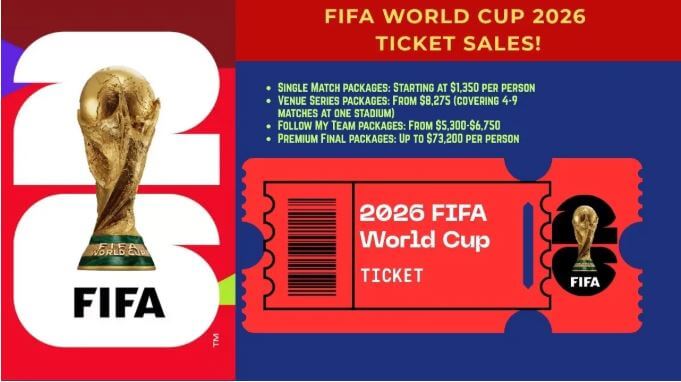



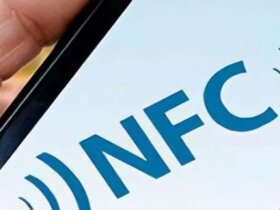


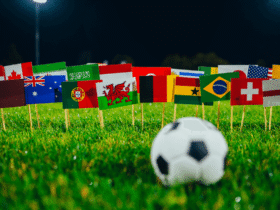


Leave a Reply